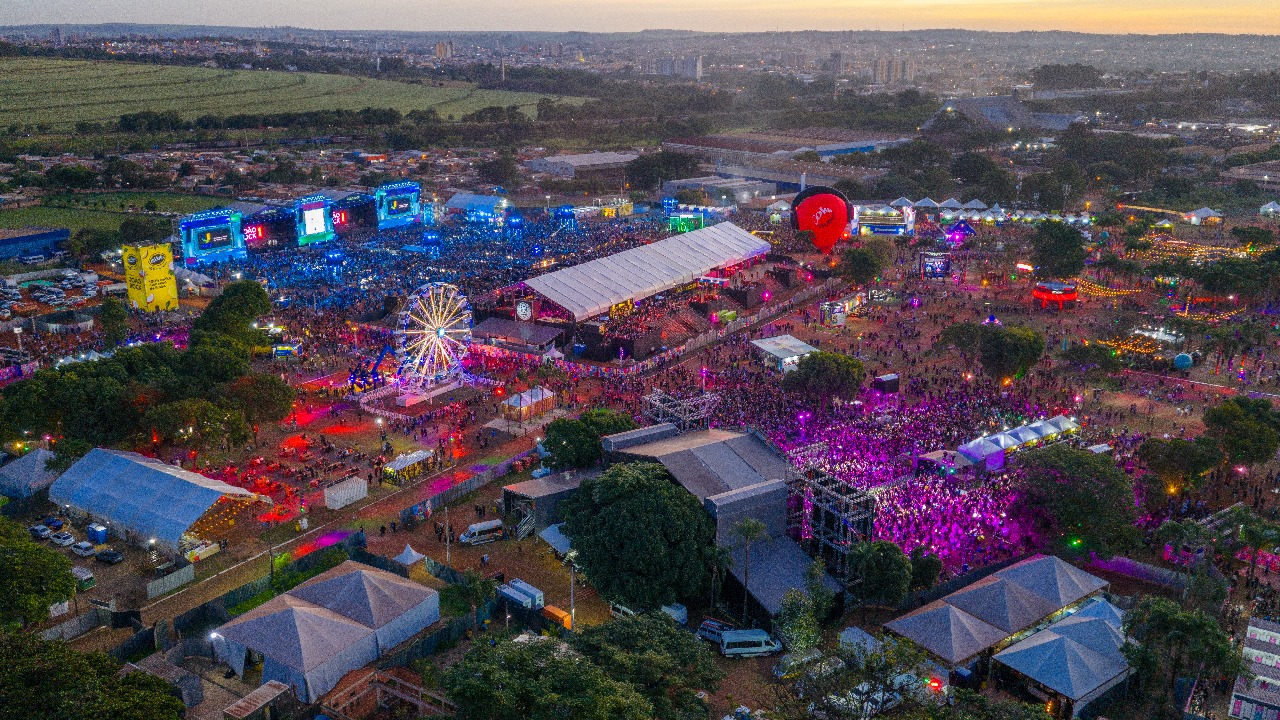Big manufacturers in China have announced electric and hybrid factories; The European and American groups are still awaiting a decision on industrial policy for the sector
Asian companies, especially Chinese, are leading the electrification process of cars in Brazil, with announcements of plants for the exclusive production of electric carshybrids and plug-in hybrids. The more traditional European and American groups are awaiting decisions on an industrial policy focused on decarbonisation and on the endorsement by the headquarters of local investments in new mobility technologies.
A global leader in the development of electrified vehicle technology and the efficient production of batteries and semiconductors, China recorded, in 2022, a share of almost 30% of electrified vehicles on total car sales in the local market, a share initially forecast for 2025.
With consumption growing rapidly, Chinese manufacturers have started to choose other countries to expand electric technology, and Brazil has entered this route. Asians are betting on a constant growth of the market, despite the segment participating in only 2.5% of car sales and not having government subsidies for the purchase, as in other countries. Additionally, there is ethanol, considered a “green fuel” to mitigate carbon emission rates.
GWM (Great Wall Motor) e BYD announced investments of BRL 10 billion and BRL 3 billion, respectively, in operations in the country. The first bought the factory of Mercedes Benz in Iracemápolis (SP), and the second is about to close the acquisition of ford in Camaçari (BA), both deactivated. A Chery it has chosen neighboring Argentina and is expected to invest R$ 2 billion to produce electric cars and batteries, according to local sources.
Among the car manufacturers installed in Brazil for the longest time, only the Japanese ones toyota and the Caoa Chery produce flex-fuel hybrid models (with an electric motor assisting the main ethanol or gasoline engine).
“With efficient public policies, Chinese companies have promoted and focused their chips on battery electric vehicles and are ahead in this technology race,” says Adalberto Maluf, president of Brazilian Association of Electric Vehicles (ABVE). “This has allowed the country to make large-scale gains in terms of production and competitiveness and is leading the electrification process in the world.”
According to Maluf, in countries where public policies exist to make the transition to electrification, such as for example Mexico, United States of America and some European, local automakers are announcing production. In the case of Brazil, the more traditional brands have to wait for the introduction of an industrial policy to define investments. “They will first have to gain scale in their home countries and then think about changing secondary factories.”
Maluf estimates that the Chinese, because they are competitive, are at the cutting edge of technology and produce their own batteries and semiconductors, not only go after markets that have incentives and public order, but also those that do not, such as Brazil. “They know their products can even compete with products of combustion,” he says.
For Henrique Antunes, sales and marketing director of BYD, as much as traditional automakers try to delay the electrification process in Brazil, they will have to follow the market. “The one who dictates this is the consumer, and when supply is greater, it will drive the price down and the market will take over,” he says. “But we won’t wait because, when demand is ripe, we will already have the production conditions to satisfy it”.
future of mobility
For several years observing the Brazilian market, which between 2009 and 2016 sold more than 3 million vehicles a year, the Chinese industry is only now arriving in the country with significant investments, and no longer with an eye to the popular compacts , but to the electrified ones, seen as the future of mobility in the world.
The world’s largest maker of electric and hybrid cars, BYD, which in the past sold 1.9 million units in China alone – almost the entire Brazilian market – intends to go further and also produce chassis for trucks and buses in Brazil, operate in the processing of lithium and, in the future, also the production of battery cells.
The forecast is that, once the purchase of the Bahia plant has been agreed, production will begin at the end of 2024 or at the beginning of 2025. “What is certain is that we will produce high-tech vehicles and develop a local production chain”, informs Antunes. “We want to be at the forefront of Brazilian electrification.”
Antunes points out that, in Brazil, the total market has been decreasing in recent years, but the share of electrified vehicles has gone from 0.2% in 2019 to 2.5% last year, “that is, it is a growing market”. For this year the National Association of Vehicle Manufacturers (Anfavea) it expects sales of 70,000 electrified vehicles, or 3.5% of the forecast total for cars and light commercial vehicles.
drive development
With the Iracemápolis (SP) plant being adapted, the GWM extension intends to start production of flexible hybrids in the first half of next year. Brazil has entered the company’s investment radar because of its green energies, such as hydro and solar, says James Yang, the company’s CEO in Brazil and Latin America. “The country also has an important supply chain and can supply vehicles to other countries in the region.”
According to the Chinese executive, rather than being the leader in the electrified car market, the brand wants to lead the development of the national industry in this segment. “We want to bring all our technology, develop an ecosystem in Brazil and look for local component suppliers.”
The cars that the brand will initially produce will be flex hybrids in the intermediate price range between entry (cheaper) and premium (more expensive). The first model to arrive in the country imported in hybrid and plug-in hybrid versions, the Haval H6 SUV, will cost R$ 209,000 to R$ 299,000.
BYD, in turn, already has plans for the local production of entry-level cars. Antunes also points out that prices for electrified vehicles are declining as production scale increases and battery price drops. “Three years ago the average price of a hybrid was R$ 300,000, and today it is just under R$ 200,000,” says Antunes.
The executive underlines that the electrified vehicle “is not just a car with a battery under the seat that consumes less fuel, but a more technological, more connected and safer product, as well as providing greater driving pleasure”. The group already offers six models imported from China – 700 units have just arrived in the country – and, since last month, has been offering electric and plug-in hybrid versions of the Yuan at the same price, R$ 270,000.
BYD has already been present in Brazil as a manufacturer for eight years, when it started assembling electric buses in Campinas (SP), where it now also produces solar panels in another plant. The company also has a factory in Manaus (AM) for bus batteries.
wait for incentives
With more than 50 years in Brazil, the Japanese toyota pioneered the local production of electrified vehicles with the Corolla flex hybrid (launched in 2019) and Corolla Cross (2021). The two currently represent 10% of the brand’s sales in the country and 30% of the national electrified market, which totaled 49,300 units in 2022.
Cassio Pagliarini, da Brilliant adviceestimates that hybrids are, for now, the main option for older manufacturers because the cost of the battery, which is higher in electric cars, is still high and makes the product less affordable.
In his view, local production of veteran brands will be more focused on cheaper models in relation to the announcements that have been made so far, including by Chinese ones. “Another big benefit is that they will be flex-fuel hybrid vehicles which, when running on ethanol, have a reduced impact on the environment,” he says.
A Stellantistrademark owner Fiat, jeeps, Citroen AND peugeot, for the moment it imports the electric Fiat 500e and the plug-in hybrid Jeep Compass. The company is working on the development of flex-fuel hybrid technology, but a car with this option does not yet have a date for local production.
Other brands also import electric and hybrid models, such as Renault, General Motors, honda, nissan AND BMW, but no one has announced an effective national production plan. A Volkswagenwhich is also working on the development of flex-fuel hybrid propulsion, does not have any imported products for sale, even though it has been testing the ID.4 electric vehicle in the country for some time.
The Brazilian group chaoa it also produces, in collaboration with the Chinese company Chery, two hybrids in Anápolis (GO), the Tiggo 5 and the Tiggo 7, and its president, Carlos Alberto de Oliveira Andrade Filho, says that there will be new products of this line at the plant of Goiás and Jacareí (SP). The plant has been shut down since last year and is expected to resume operations in 2025.
Source: Terra
Rose James is a Gossipify movie and series reviewer known for her in-depth analysis and unique perspective on the latest releases. With a background in film studies, she provides engaging and informative reviews, and keeps readers up to date with industry trends and emerging talents.








